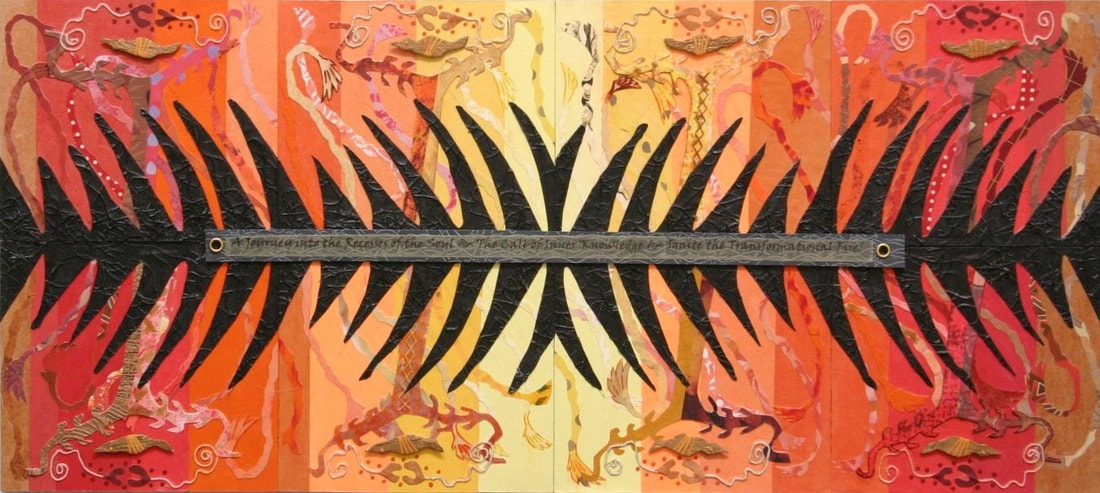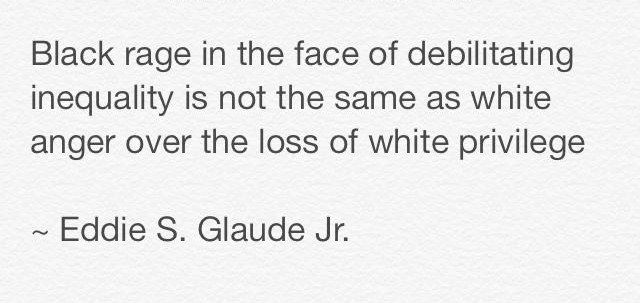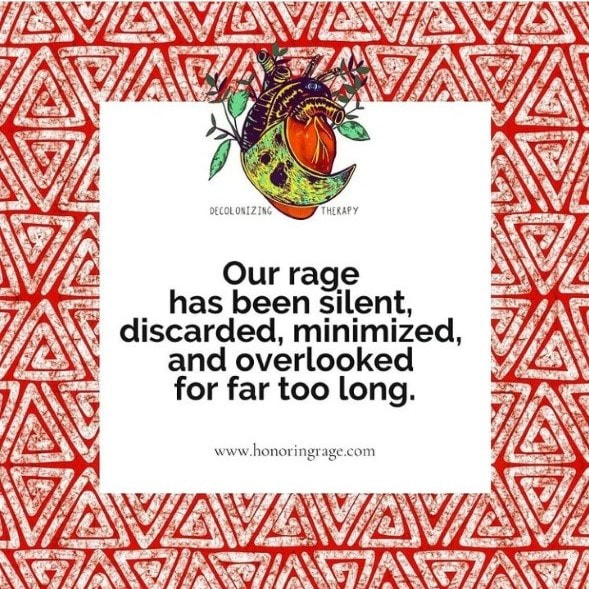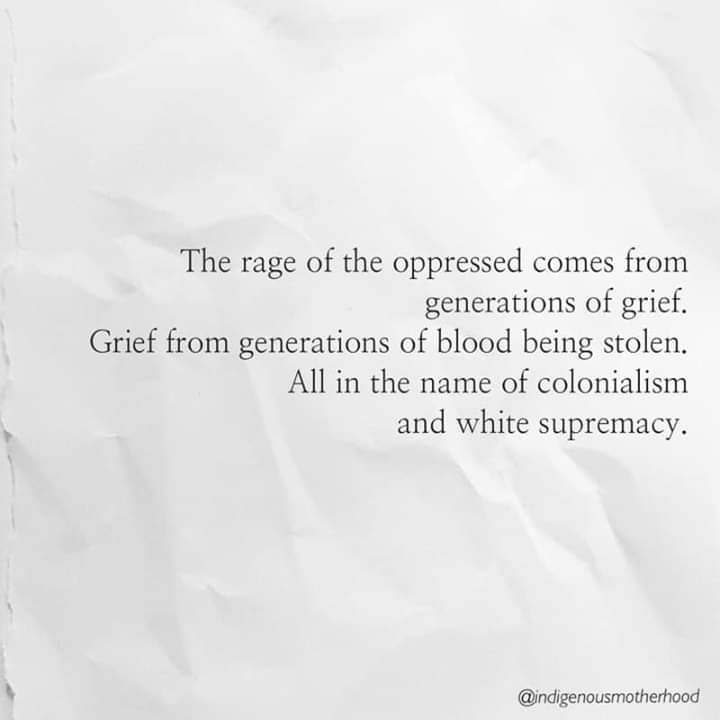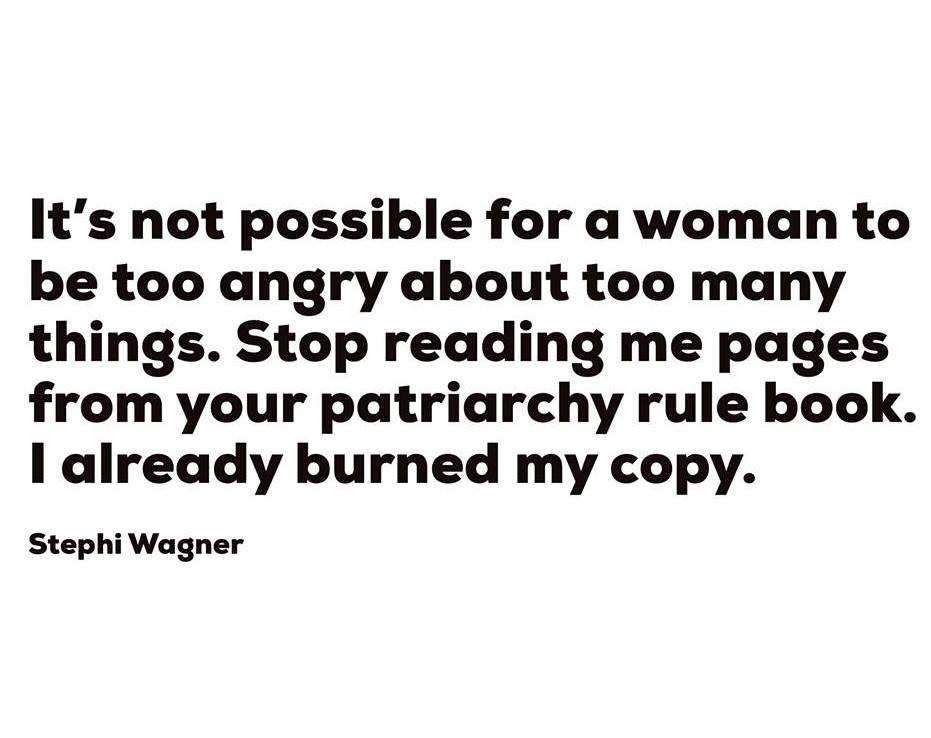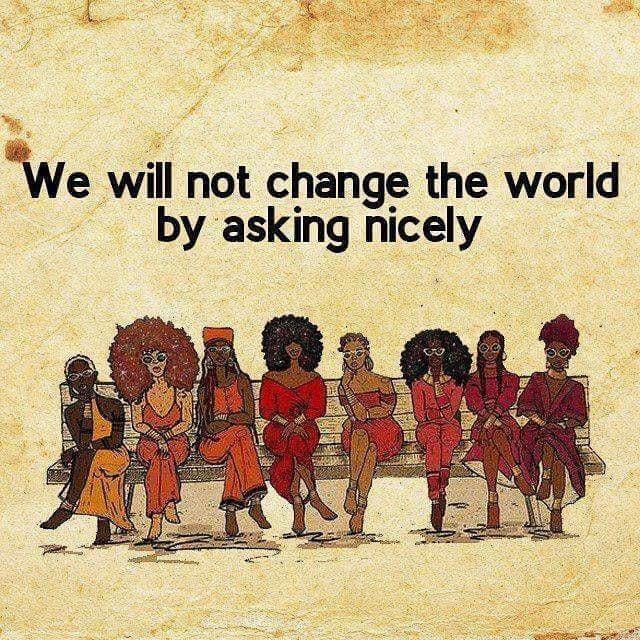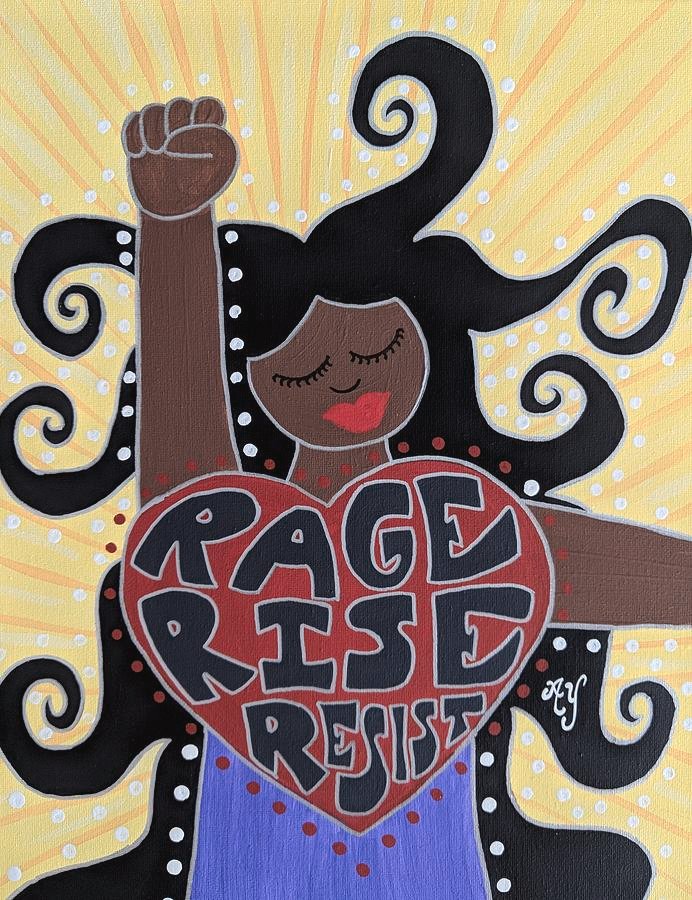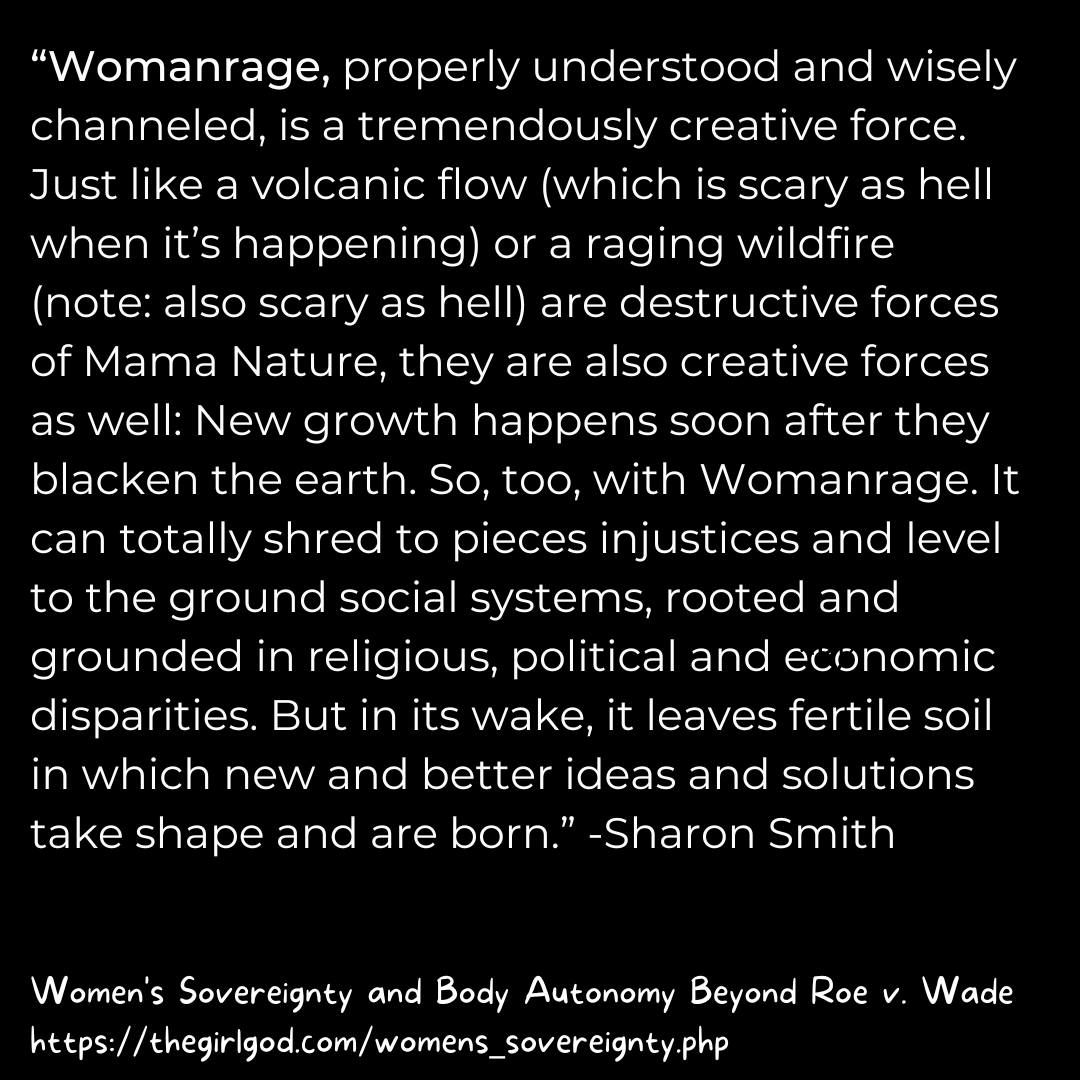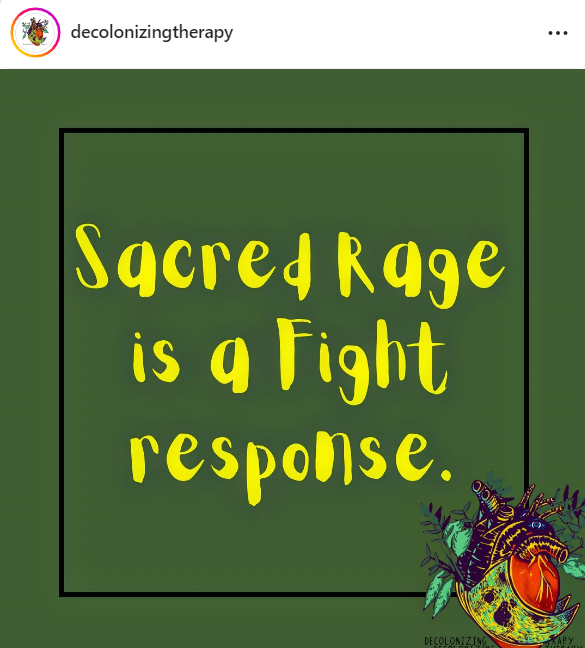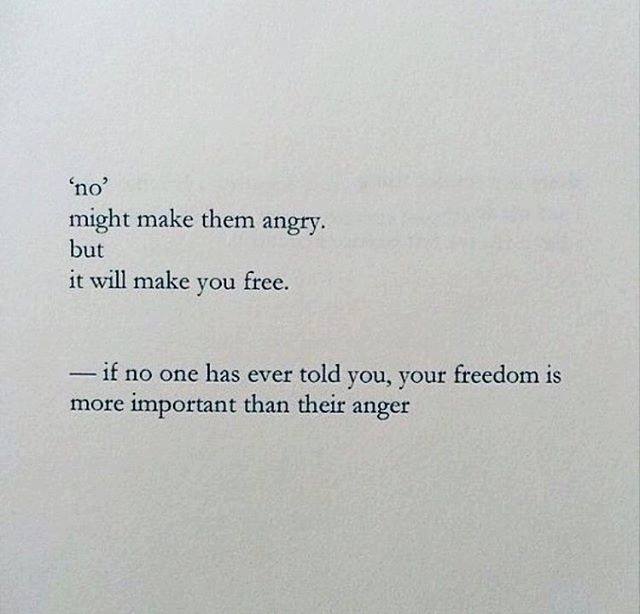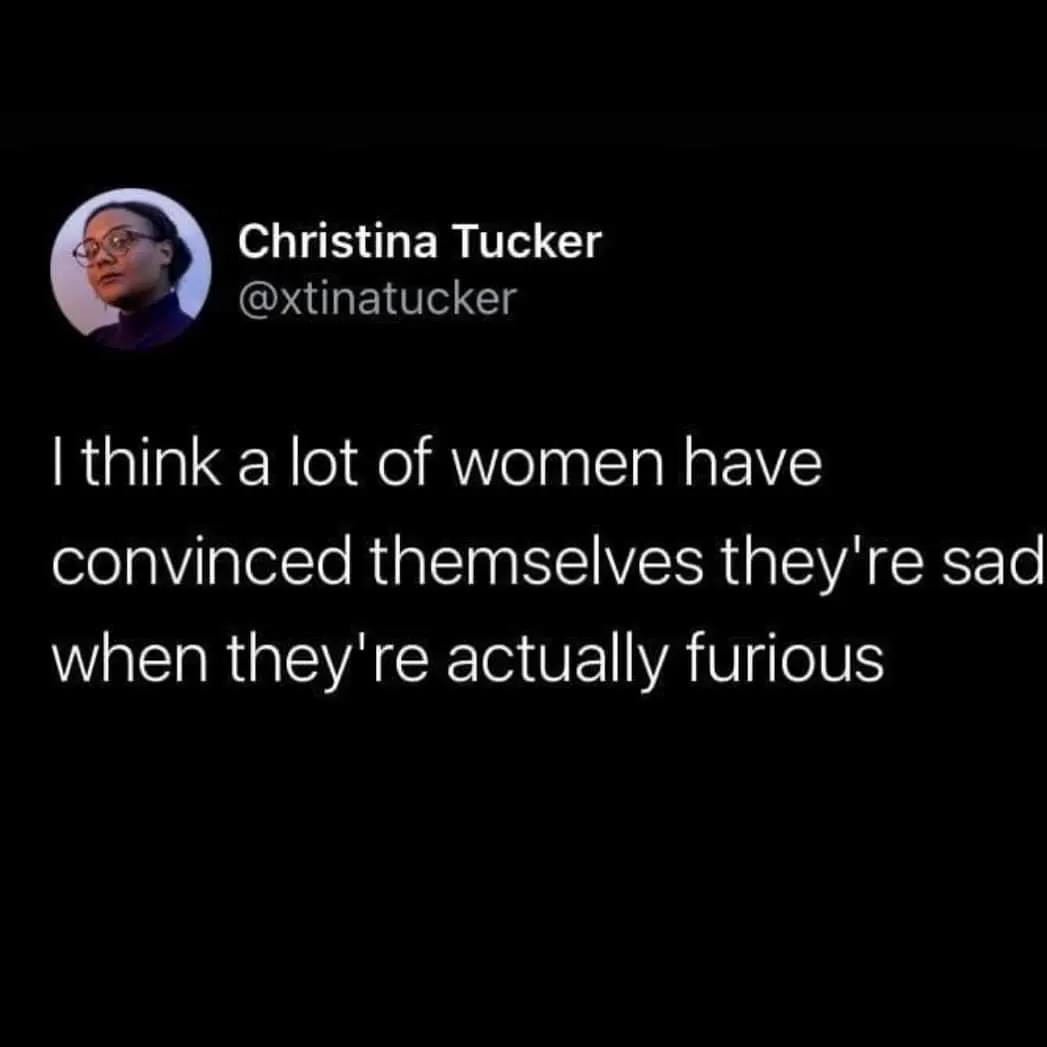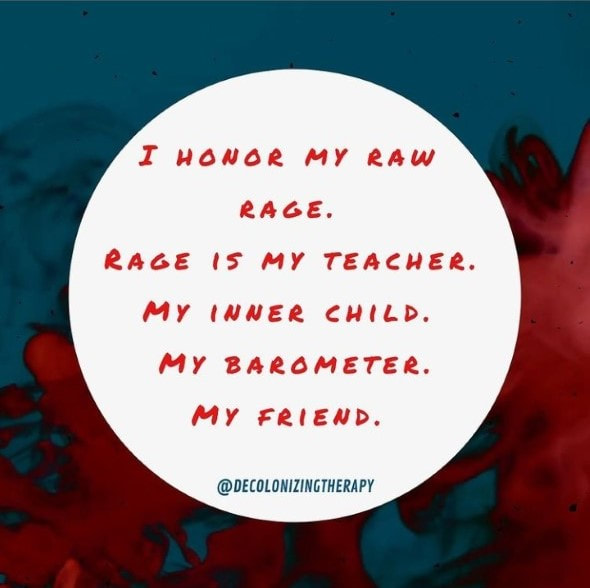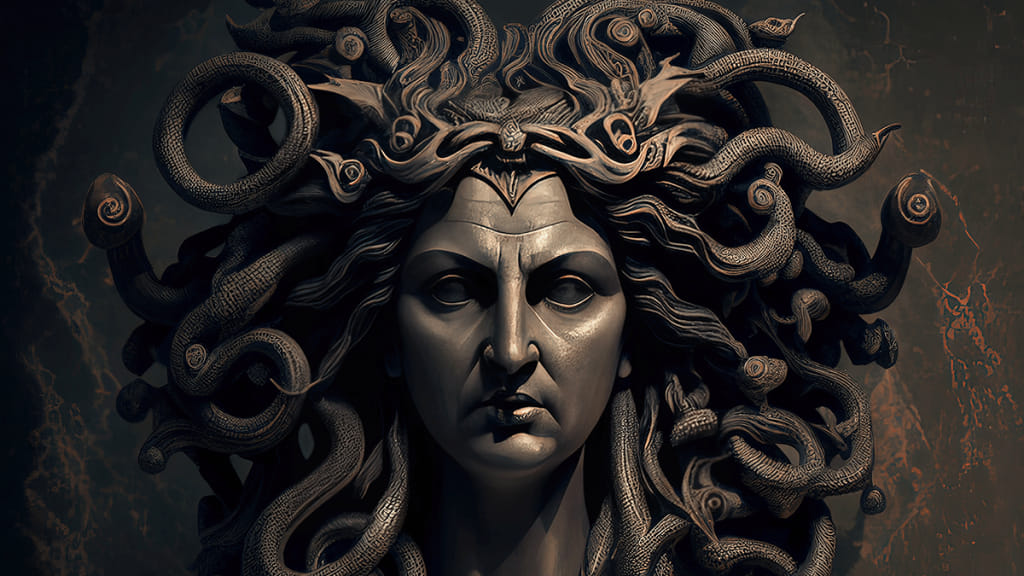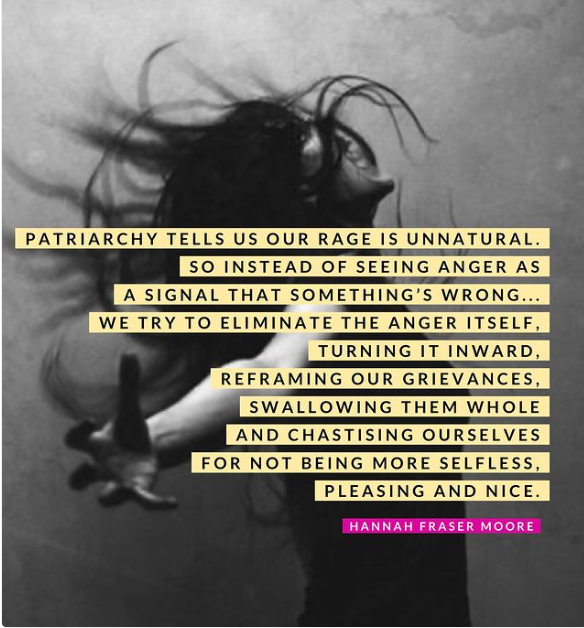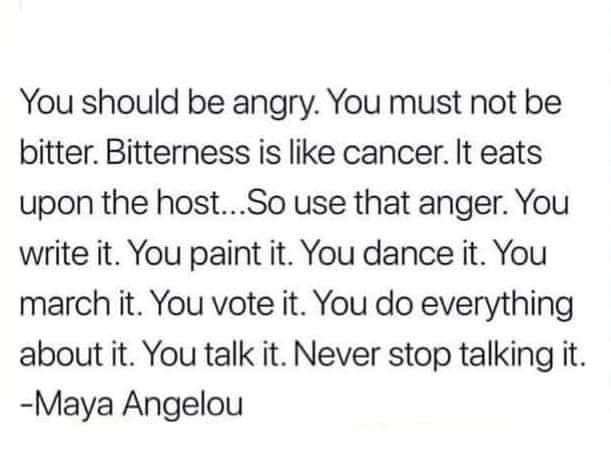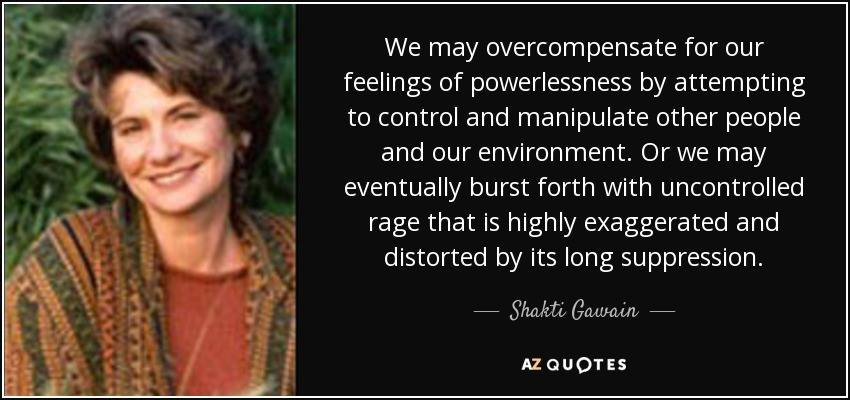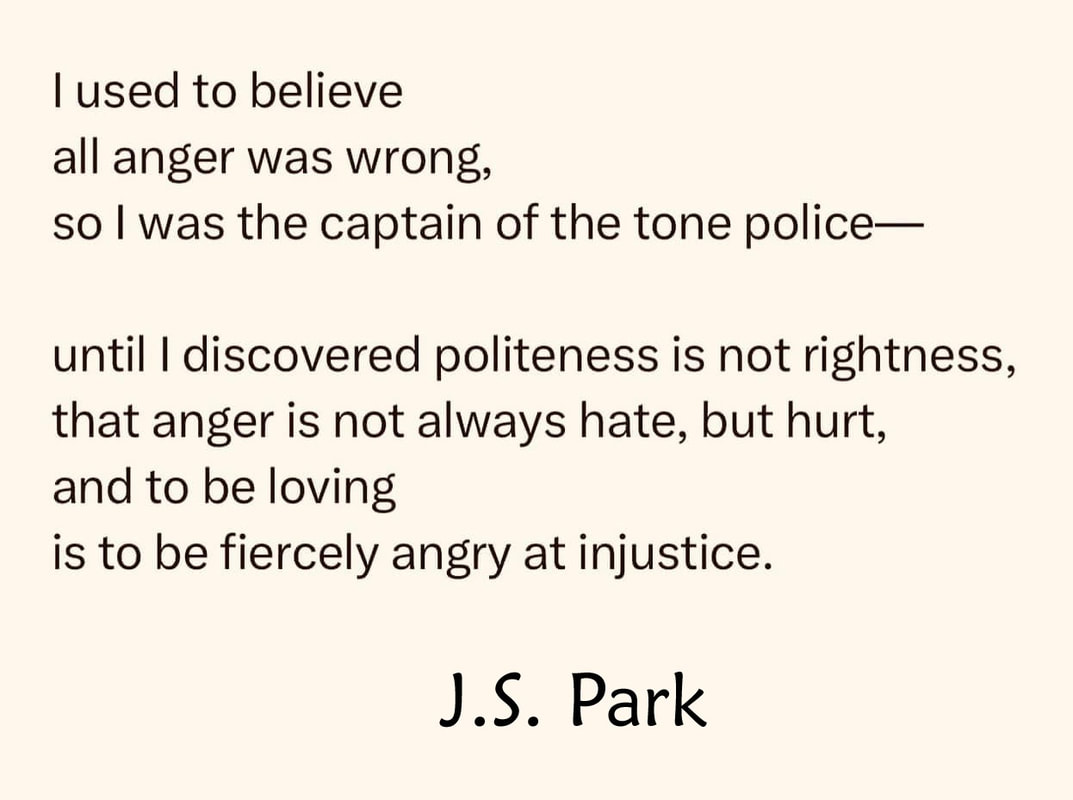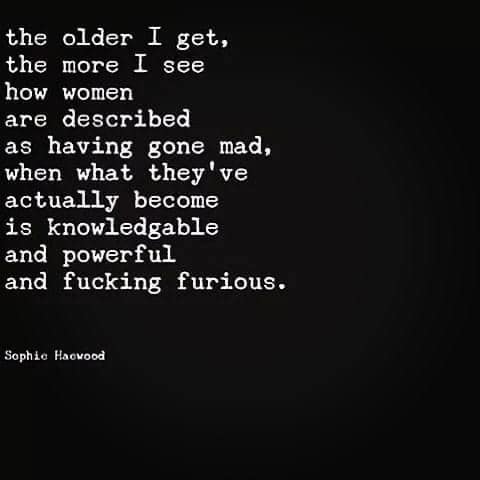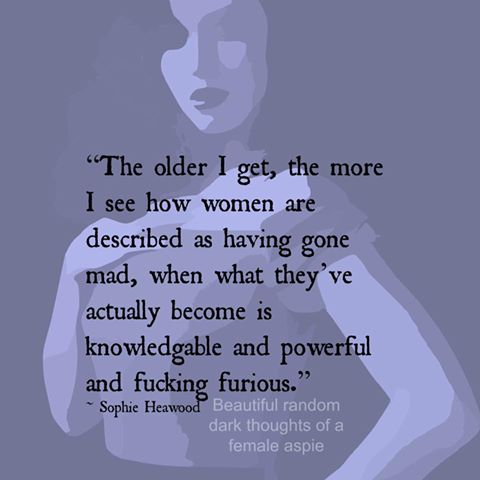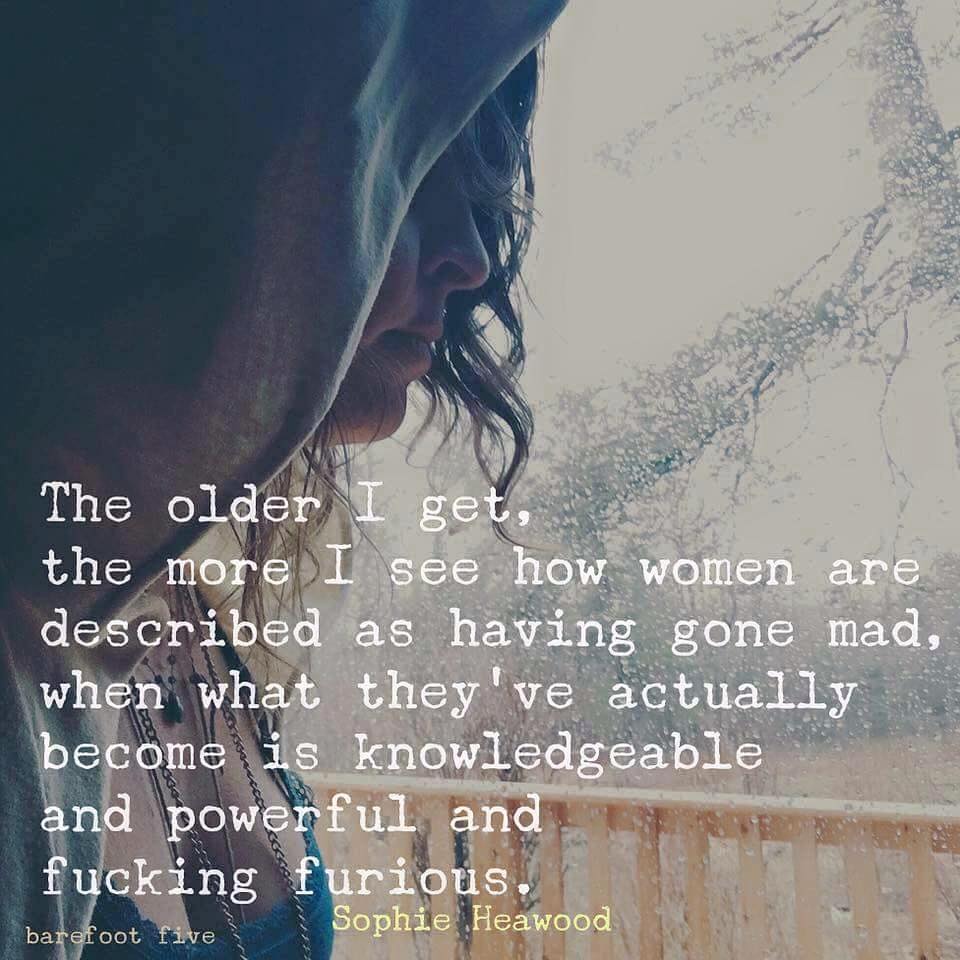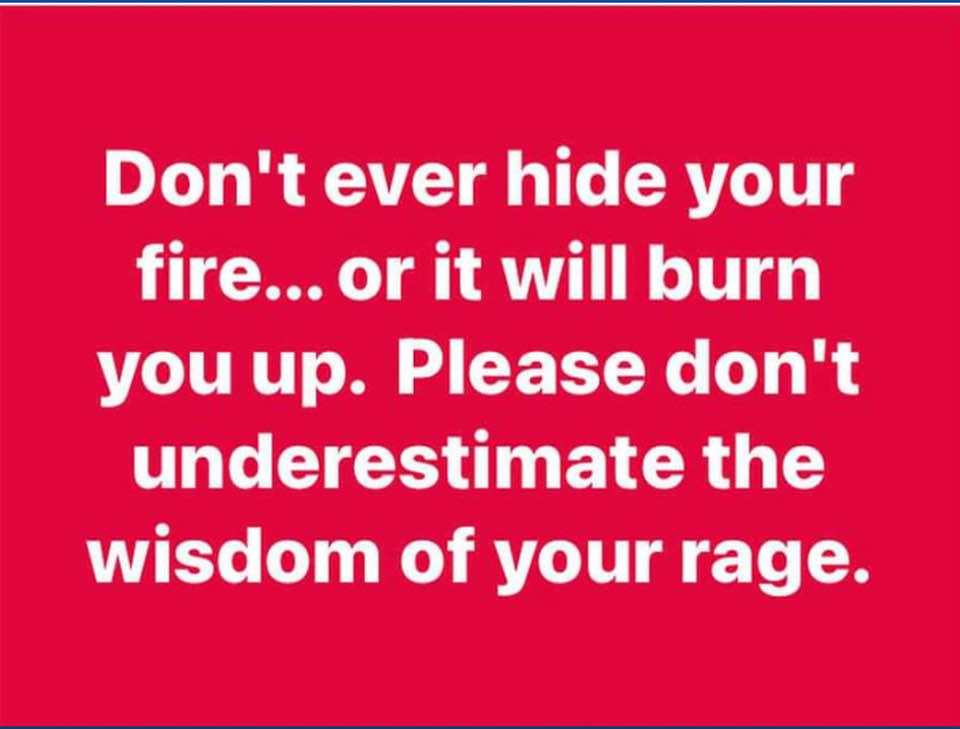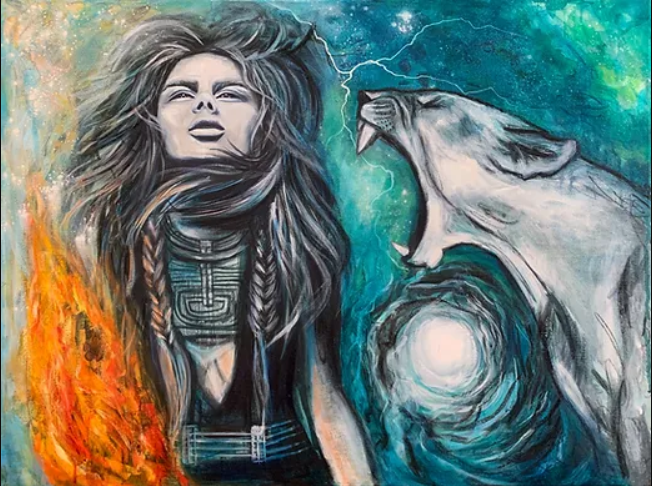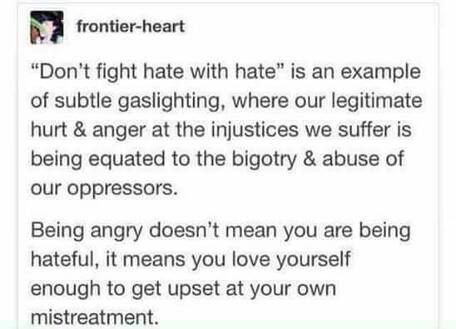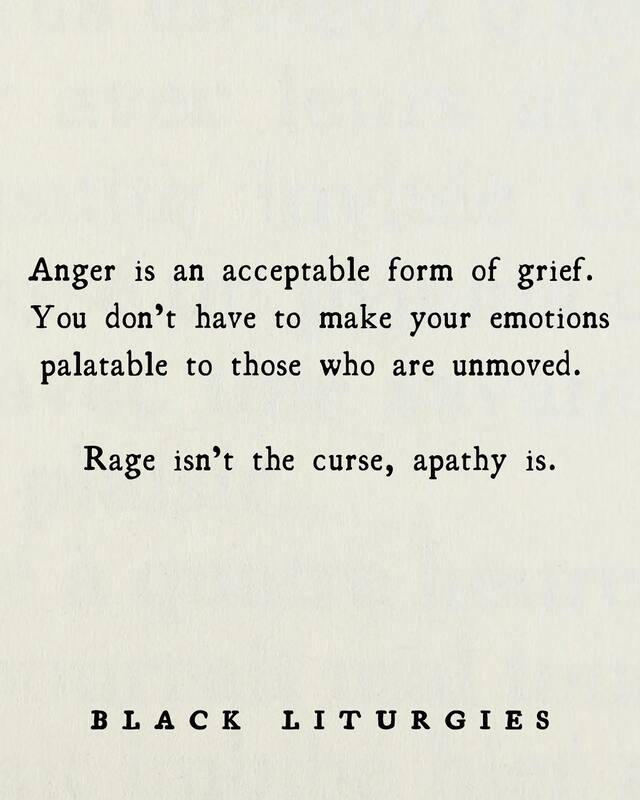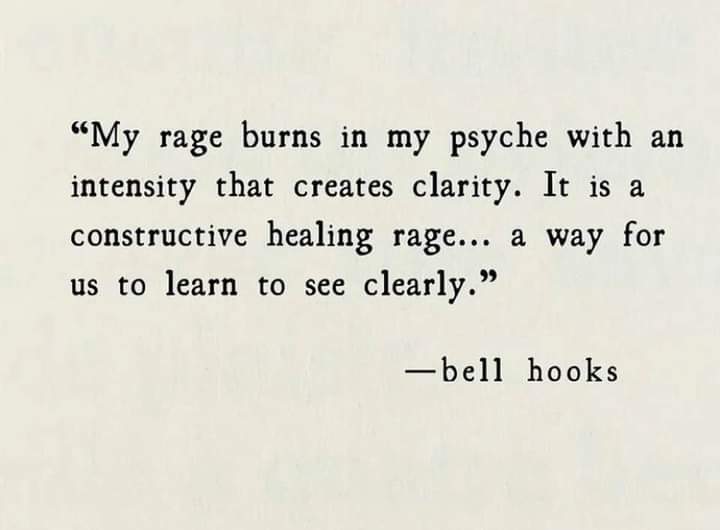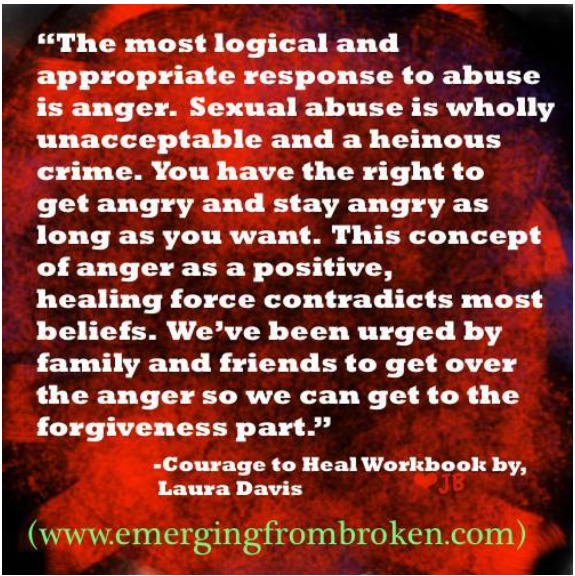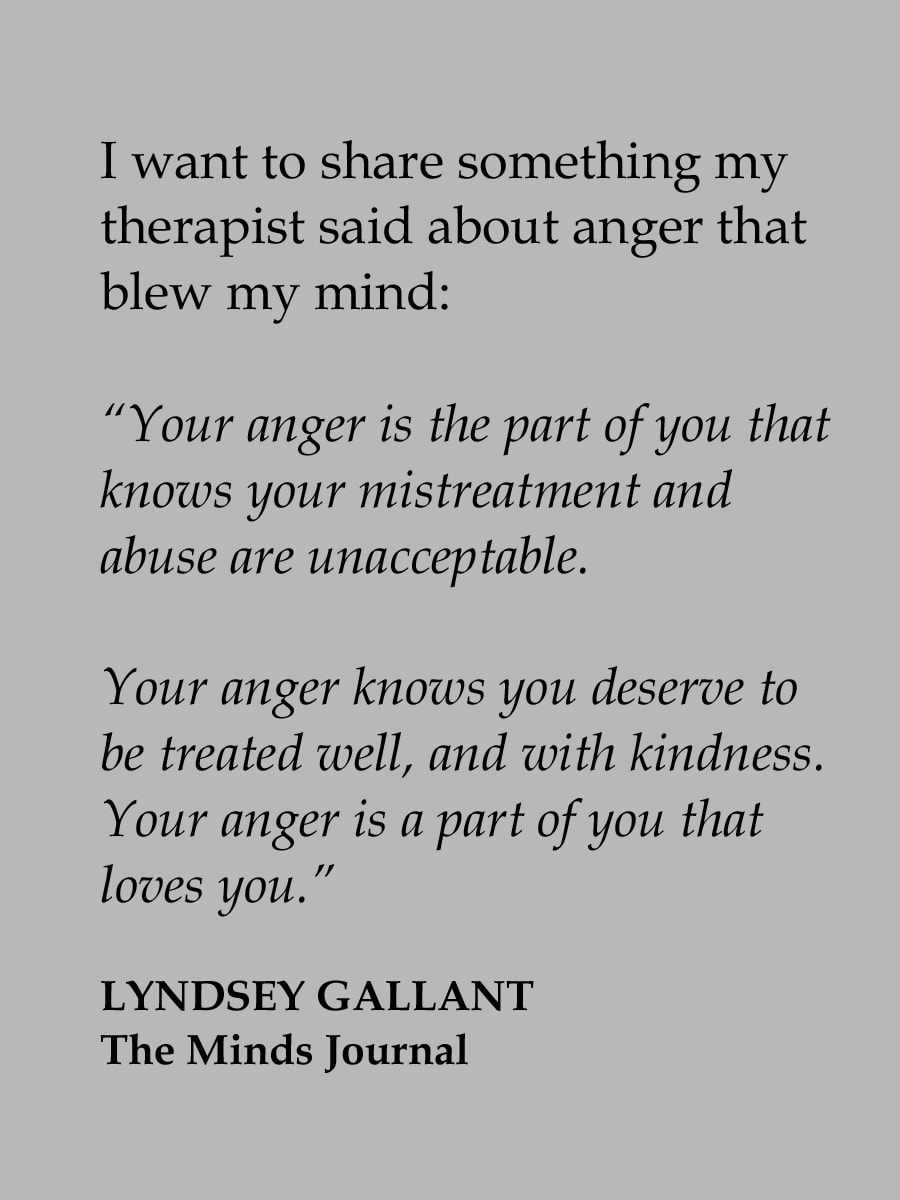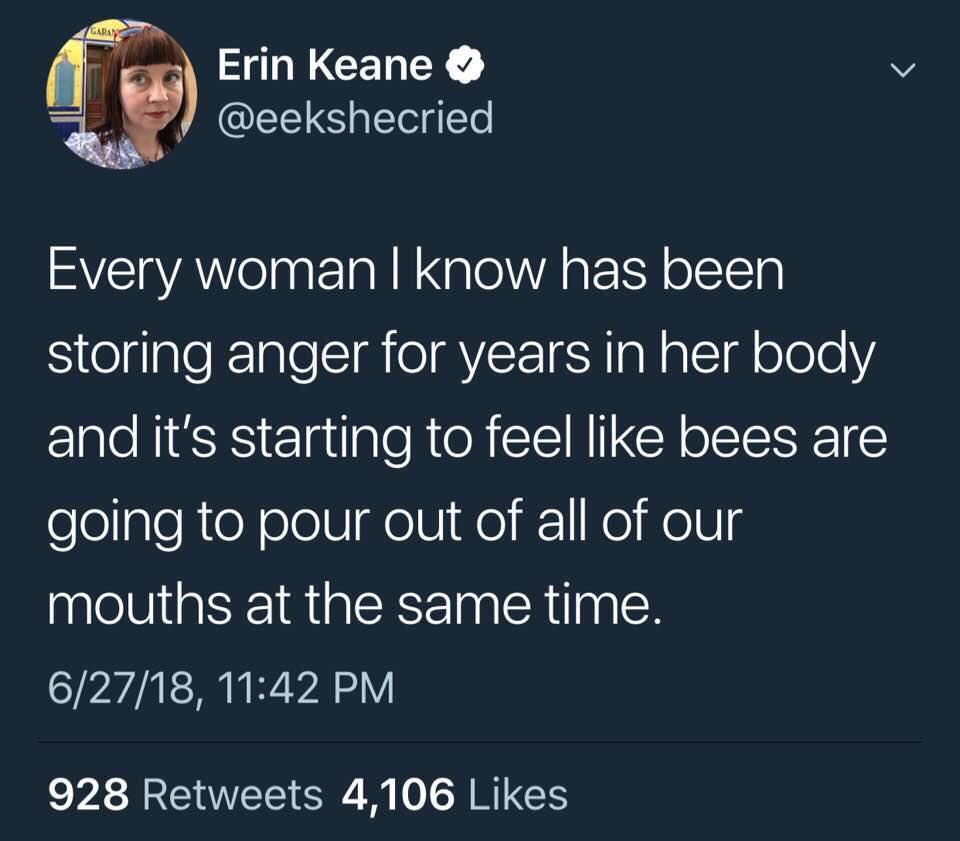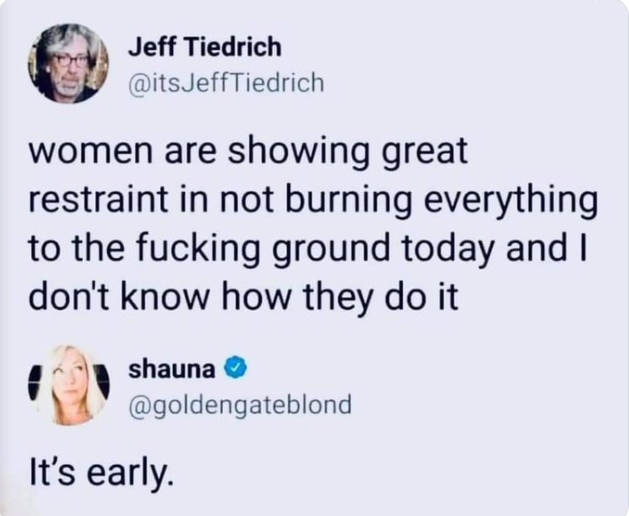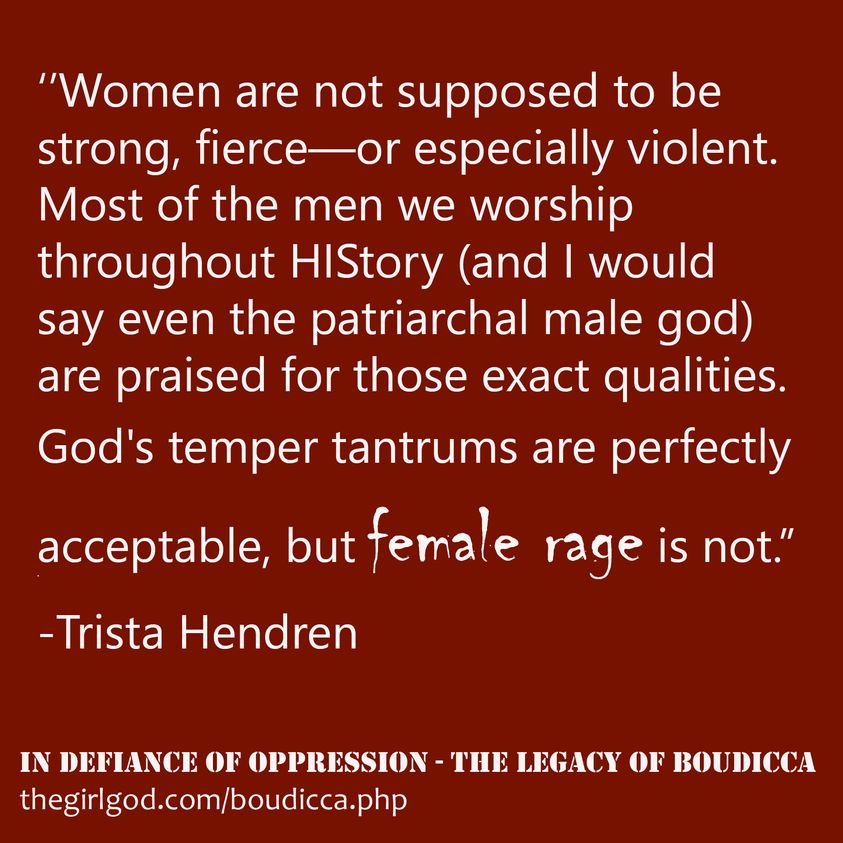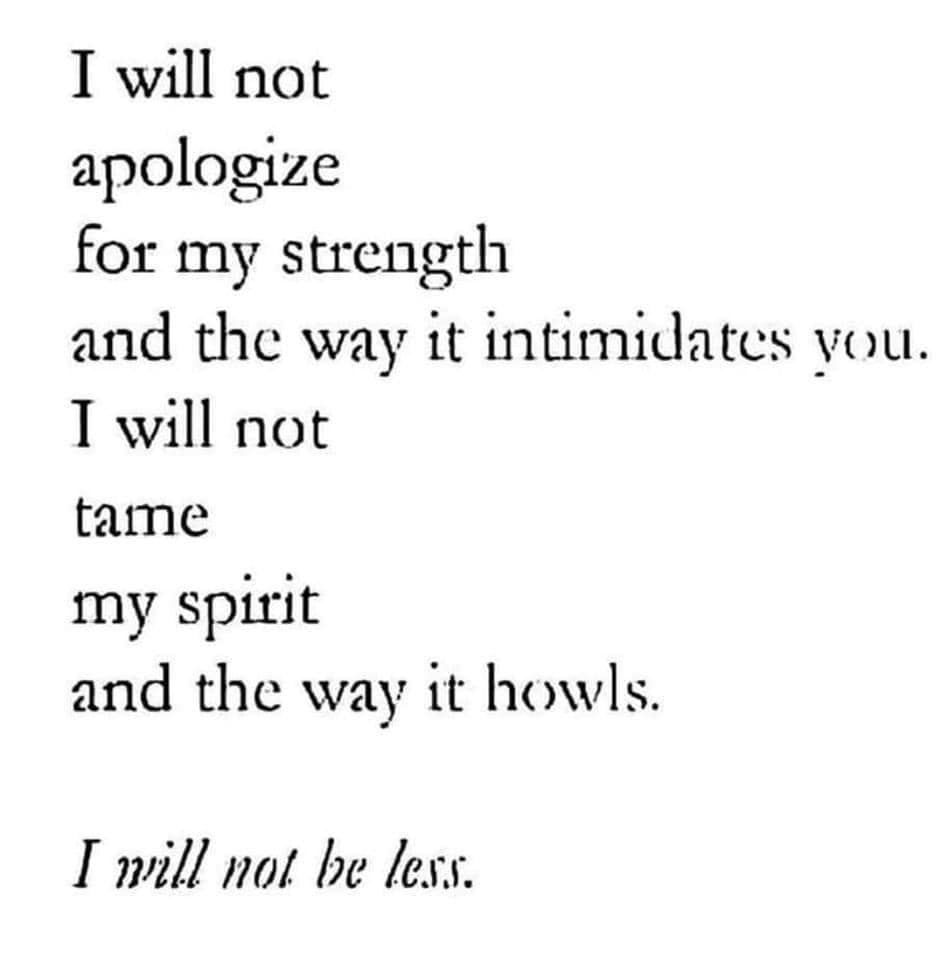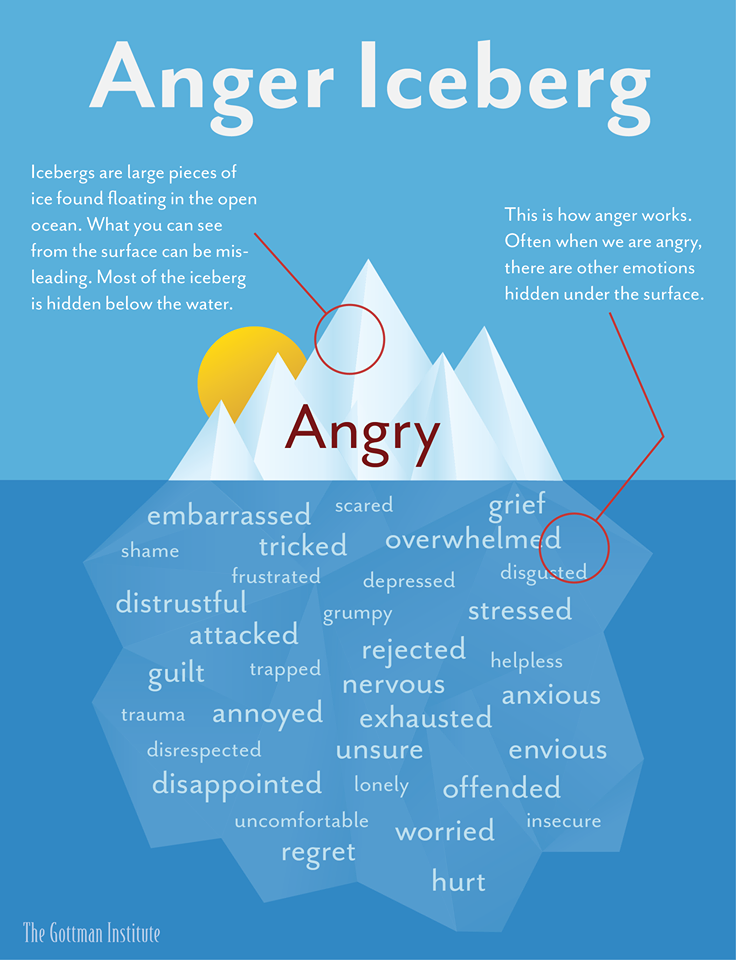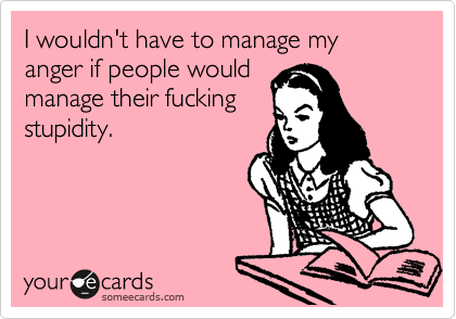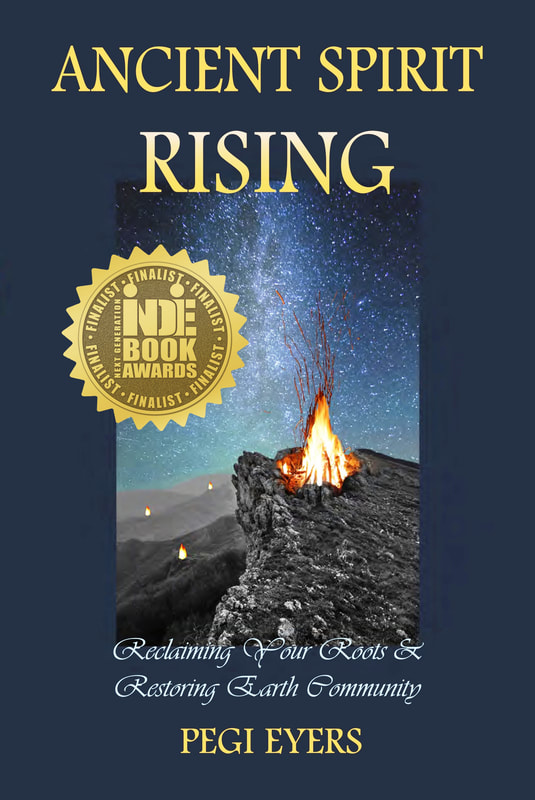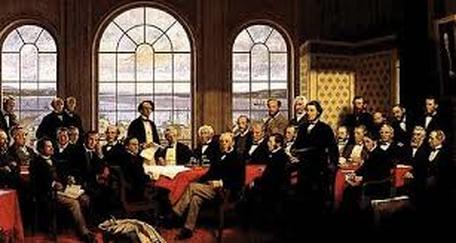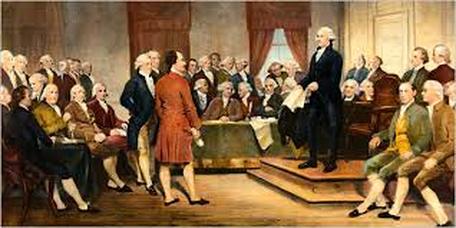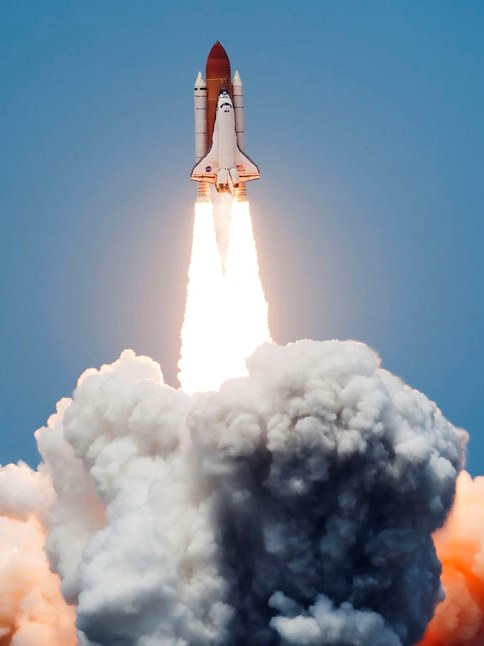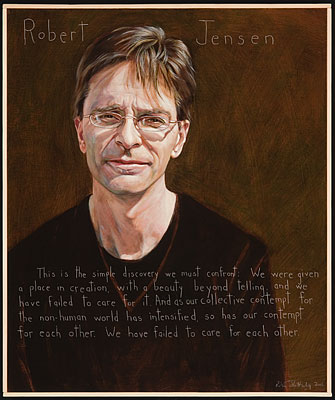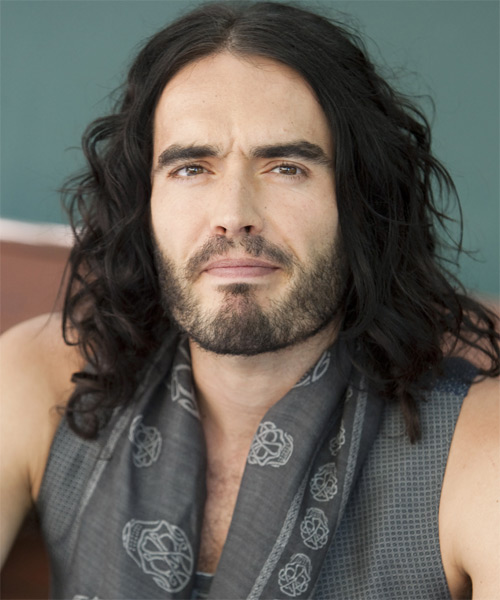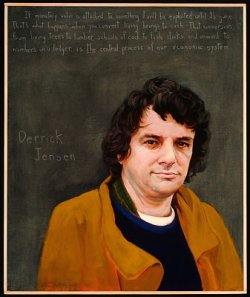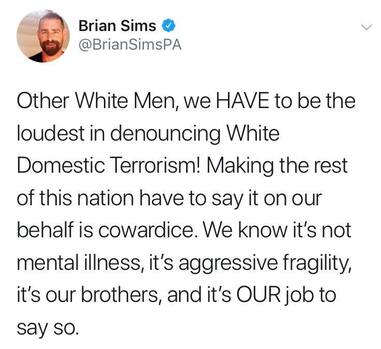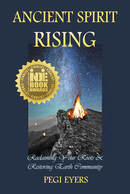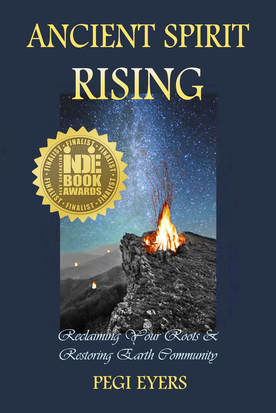PEGI EYERS
Anger is taboo in this society. We do not understand anger, we are terrified of the damaging effects of anger, and we have been conditioned by Empire to think that there is no place for anger in our “civilized” discourse. We are not allowed to communicate anger, and at the farthest end of the continuum we are penalized, criminalized even, for daring to express anger. When anger does arise, the societal agreement is that we are supposed to be able to control the expression of it, and that this choice is fully under our control. Yet, beyond those who seem to be “born angry” and have a dysfunctional vendetta against the world, or those who use anger to buttress their ego issues, the anger of most functioning human beings is a justified response. In most cases, we could even say that anger is a mark of authenticity, and if one’s moral code or sense of right and wrong is offended, anger is the result. In fact, how would we even know if someone genuinely cared or had a stake in an issue, unless they got angry?
To speak of how anger is perceived in our society is to be influenced by western thinking, and it is not rational to apply those same values to other groups. Societal taboos may be grudgingly accepted by whitestream folk, but what about non-western peoples? Often the oppressed (the so-called “racialized minorities”) live with excruciating anger every day of their lives, because of the racism, microaggressions, and human rights violations directed toward them. How can being treated “less than” or deemed inferior NOT create anger, when one knows to the bottom of one's heart, mind and soul that they are entitled to the same respect and benefits as everyone else? As privileged members of the dominant society, relinquishing our “white lens” means we admit moral absolutism does not exist, and that anger cannot be penalized across-the-board. As a concrete example, the family and community members of the many Murdered and Missing Indigenous Women in Canada continue to storm the gates of the government for answers every day of their lives. How do we judge that kind of anger, or make it taboo, or tell them that they need to find respectable outlets for their rage?
To speak of how anger is perceived in our society is to be influenced by western thinking, and it is not rational to apply those same values to other groups. Societal taboos may be grudgingly accepted by whitestream folk, but what about non-western peoples? Often the oppressed (the so-called “racialized minorities”) live with excruciating anger every day of their lives, because of the racism, microaggressions, and human rights violations directed toward them. How can being treated “less than” or deemed inferior NOT create anger, when one knows to the bottom of one's heart, mind and soul that they are entitled to the same respect and benefits as everyone else? As privileged members of the dominant society, relinquishing our “white lens” means we admit moral absolutism does not exist, and that anger cannot be penalized across-the-board. As a concrete example, the family and community members of the many Murdered and Missing Indigenous Women in Canada continue to storm the gates of the government for answers every day of their lives. How do we judge that kind of anger, or make it taboo, or tell them that they need to find respectable outlets for their rage?
While not diminishing the anger of marginalized groups, anger is definitely a liberatory power across the intersectional oppressions, and with certain social justice actions, well-directed and finely-honed anger (the “rage against the machine”) is our most effective strategy. Even the best work in critical thought today is a distillation of acute anger, and for the revolution of the future, we must make space for the transformative power of anger to come through. Anger that translates into passion is a powerful tool for communication! We also need to dismantle the double standard that allows “angry men” to be heard and honored, while “angry women” are diminished and labelled “delusional” or “overly emotional.” There is so much to be angry about!
As illustrated in the work of Rivera Sun with her book The Dandelion Insurrection: Love and Revolution perhaps holding the bright flame of anger in check with eloquent persuasion and powerful public speaking skills is the best weapon of all. And brilliant initiatives such as The Dangerous Woman Project @ the University of Edinburgh are working to further the acceptance of outrage in our public discourse spaces.
On a personal scale and in our day-to-day relationships, dealing with the anger of others is an issue that touches all of our lives. For progressive white folks engaged in allyship with First Nations, we may find ourselves on the receiving end of anger from First Nations acquaintances and community members. And yet the ability to sit with the anger of others is crucial to mending the fractured colonizer/colonized relationship, and for reversing the effects of white supremacy and racism that FN continue to experience. As much as possible, the best response is patience, compassion and equanimity, and to understand the arising of FN anger by turning the tables and imagining ourselves the targets of devastating cultural and individual genocide. What would our lived reality be like? How any Settler would expect that those who have been murdered, marginalized, criminalized, driven off the land, experimented on, ignored and oppressed not to harbour anger and negative feelings toward the oppressor is complete nonsense, and the repudiation of these honest feelings continues to perpetuate the racist agenda of the overculture and the invisibility of whiteness.
As illustrated in the work of Rivera Sun with her book The Dandelion Insurrection: Love and Revolution perhaps holding the bright flame of anger in check with eloquent persuasion and powerful public speaking skills is the best weapon of all. And brilliant initiatives such as The Dangerous Woman Project @ the University of Edinburgh are working to further the acceptance of outrage in our public discourse spaces.
On a personal scale and in our day-to-day relationships, dealing with the anger of others is an issue that touches all of our lives. For progressive white folks engaged in allyship with First Nations, we may find ourselves on the receiving end of anger from First Nations acquaintances and community members. And yet the ability to sit with the anger of others is crucial to mending the fractured colonizer/colonized relationship, and for reversing the effects of white supremacy and racism that FN continue to experience. As much as possible, the best response is patience, compassion and equanimity, and to understand the arising of FN anger by turning the tables and imagining ourselves the targets of devastating cultural and individual genocide. What would our lived reality be like? How any Settler would expect that those who have been murdered, marginalized, criminalized, driven off the land, experimented on, ignored and oppressed not to harbour anger and negative feelings toward the oppressor is complete nonsense, and the repudiation of these honest feelings continues to perpetuate the racist agenda of the overculture and the invisibility of whiteness.
An essential part of our learning curve and anti-colonization process as Settlers is to listen carefully to the emotional honesty of First Nations activists, thought leaders, Elders and community peoples. It is NOT the responsibility of the oppressed to educate the oppressor (as Settlers we need to do our own “heavy lifting”), but when interacting with the authentic voices of FN in social justice solidarity spaces, we must understand that we can be called out on our mistakes. Sometimes the words will be communicated in anger, yet there is a chance we may actually learn more from this kind of authenticity than being coddled or subject to the “love voice.”
During the first two years of Idle No More I experienced being "called out" when engaged with the movement in person and on social media, as my mistakes were noted and commented on, and none too kindly either. Somehow I was able to move past my emotional response to the anger, and to deeply analyze exactly what the FN person was telling me. It may not be the same for everyone, but I truly believe that I learned faster and much more effectively from the anger-tinged interactions, and overall I am incredibly grateful for the “tough love” I received. Today I make fewer mistakes, yet when I am “called out” or “checked” I continue to use these exchanges as a learning opportunity.
Unfortunately many of us in the Settler Society, at the first hint of anger, block out the voices of people of colour and indulge in the questionable practices of white fragility by “tone policing” or “blaming the victim.” Yet considering the history of Settler-Colonialism in the Americas, we do not get to judge First Nations, or tell them how to behave. As I was able to do, we need to be open to the anger as a learning tool and not take anger personally, as we move on to the next level. Overall, the role of the ally is to lighten the burden of BIPOC, not add to it by silencing, arguing, or shaming. An ally should listen and learn, support the actions of the oppressed group, and keep their "own baggage” to a minimum.
Plainly put, we need to reverse the white privilege of “sucking the air out of the room” with our own ideas, demands and emotional life. These bad habits actually reinforce white comfort and keep us stuck in a bubble of safety, and in the long run, end up diminishing the overall anti-oppression and anti-racism movements. Our inability to address our own societal conditioning and false belief systems, just re-centers whiteness all over again. For once, it’s not about us! As allies we need to be engaged with addressing the outrageous threats and challenges facing BIPOC by taking responsibility, being accountable, uncolonizing our thinking, and making changes to oppressive power structures.
During the first two years of Idle No More I experienced being "called out" when engaged with the movement in person and on social media, as my mistakes were noted and commented on, and none too kindly either. Somehow I was able to move past my emotional response to the anger, and to deeply analyze exactly what the FN person was telling me. It may not be the same for everyone, but I truly believe that I learned faster and much more effectively from the anger-tinged interactions, and overall I am incredibly grateful for the “tough love” I received. Today I make fewer mistakes, yet when I am “called out” or “checked” I continue to use these exchanges as a learning opportunity.
Unfortunately many of us in the Settler Society, at the first hint of anger, block out the voices of people of colour and indulge in the questionable practices of white fragility by “tone policing” or “blaming the victim.” Yet considering the history of Settler-Colonialism in the Americas, we do not get to judge First Nations, or tell them how to behave. As I was able to do, we need to be open to the anger as a learning tool and not take anger personally, as we move on to the next level. Overall, the role of the ally is to lighten the burden of BIPOC, not add to it by silencing, arguing, or shaming. An ally should listen and learn, support the actions of the oppressed group, and keep their "own baggage” to a minimum.
Plainly put, we need to reverse the white privilege of “sucking the air out of the room” with our own ideas, demands and emotional life. These bad habits actually reinforce white comfort and keep us stuck in a bubble of safety, and in the long run, end up diminishing the overall anti-oppression and anti-racism movements. Our inability to address our own societal conditioning and false belief systems, just re-centers whiteness all over again. For once, it’s not about us! As allies we need to be engaged with addressing the outrageous threats and challenges facing BIPOC by taking responsibility, being accountable, uncolonizing our thinking, and making changes to oppressive power structures.
Yet even in the face of these “tried and true” ally guidelines, and regardless of blowback, I continue to struggle with certain aspects of the "anger conversation." I have personally been subject to the far end of the anger continuum from people of colour, including relentless verbal, emotional and psychological abuse, as well as public insults and severe bullying. If it is generally agreed that the ally is supposed to continue to defer and retain equanimity in the face of acute lateral violence, then in one particular situation I failed the test. Unfortunately I discovered that my ability to deflect anger, and my powers of tolerance, compassion and understanding had a breaking point.
As I closed off and walked away from the situation, I was left with lingering doubts, and questions about the effectiveness of Ally Theory. For example, at what point does the responsibility to one’s own human dignity kick in? Should an ally participate in an abusive situation to the point of martyrdom? Is this level of personal self-abrogation even possible? And even though we are aware of the history of oppression, is our responsibility to our own psychological health the greater force? In my own case I was able to move away from the person but not the work. Yet faced with extreme anger I can see how others may remove themselves from solidarity spaces altogether. Being an ally with a heavy heart is not a process anyone can continue in the long run. I have not been able to come to a definitive conclusion about this aspect of Allyship Theory, but I am extremely grateful for the various opinions and responses from both activists and BIPOC, who struggle with the same issues.
White activist, academic and early supporter of Idle No More, Tobold Rollo has identified that both the deference and dominant aspect of the Settler-Ally dynamic are two sides of the same privileged coin. Both deference and dominance allow allies to “recline at ease” in their privilege, and allow us to avoid any risk involved in critical engagement. “The strategy of renouncing one’s agency and deferring accountability is itself an egregious exercise of privilege, not to mention an insult to marginalized groups who continue to have their own agency distorted or denied. The luxury of suspending critical thinking and judgement, given that the groups to which we are committed still struggle against the institutional suppression of their critical capacities, is a slight against them. In short, inverting a personal structure of dominance to produce a structure of deference is just another patronizing failure to treat members of the marginalized group as full human beings.”
In Ethos of the Ally: Deference, Dialogue, and Distance Rollo makes the case that treating each other as full human beings through respectful disagreement will highlight the mutual worth of all people. The marginalized group or person is neither above, nor below, the ally’s critical thinking process and expression as rooted in their own lived experience. In short, disagreements can be a healthy precursor to mutual understanding, and exchanges based on realistic thoughts and feelings reinforce the authentic diversity that we need, as opposed to the homogeneity of silence and non-engagement.
As I closed off and walked away from the situation, I was left with lingering doubts, and questions about the effectiveness of Ally Theory. For example, at what point does the responsibility to one’s own human dignity kick in? Should an ally participate in an abusive situation to the point of martyrdom? Is this level of personal self-abrogation even possible? And even though we are aware of the history of oppression, is our responsibility to our own psychological health the greater force? In my own case I was able to move away from the person but not the work. Yet faced with extreme anger I can see how others may remove themselves from solidarity spaces altogether. Being an ally with a heavy heart is not a process anyone can continue in the long run. I have not been able to come to a definitive conclusion about this aspect of Allyship Theory, but I am extremely grateful for the various opinions and responses from both activists and BIPOC, who struggle with the same issues.
White activist, academic and early supporter of Idle No More, Tobold Rollo has identified that both the deference and dominant aspect of the Settler-Ally dynamic are two sides of the same privileged coin. Both deference and dominance allow allies to “recline at ease” in their privilege, and allow us to avoid any risk involved in critical engagement. “The strategy of renouncing one’s agency and deferring accountability is itself an egregious exercise of privilege, not to mention an insult to marginalized groups who continue to have their own agency distorted or denied. The luxury of suspending critical thinking and judgement, given that the groups to which we are committed still struggle against the institutional suppression of their critical capacities, is a slight against them. In short, inverting a personal structure of dominance to produce a structure of deference is just another patronizing failure to treat members of the marginalized group as full human beings.”
In Ethos of the Ally: Deference, Dialogue, and Distance Rollo makes the case that treating each other as full human beings through respectful disagreement will highlight the mutual worth of all people. The marginalized group or person is neither above, nor below, the ally’s critical thinking process and expression as rooted in their own lived experience. In short, disagreements can be a healthy precursor to mutual understanding, and exchanges based on realistic thoughts and feelings reinforce the authentic diversity that we need, as opposed to the homogeneity of silence and non-engagement.
By their very nature disagreements can be extremely stressful, and add another layer of trauma for BIPOC to carry. And for both Settlers and First Nations folks forced to navigate in colonial spaces, it can be easy to slip back into the white habits of conversation such as competition and ad hominem attacks. This is not to say that respectful dialogue cannot happen, but perhaps the default in BIPOC spaces should remain at the level of deference? And regardless of the conflict that may (or may not) happen, allies carry on our work autonomously, often in private rather than public spaces. Our top priority is to actively and vocally oppose colonialism, patriarchy, racism, and the intersectional oppressions on principle because they are WRONG, not because BIPOC are engaging us in conversation, or are monitoring us, or are giving us their stamp of approval.
It is helpful to remember that those experiencing oppression may communicate their truth with raw emotion, yet we don't have to receive it as a personal hit. Many BIPOC have stated that their anger is NOT aimed at individual white folks, but at the entire system of systemic inequality. This is why we must not shy away from the anger conversation, and continue to focus on our goals. The bottom line is that the anti-oppression and anti-racism movements are just and ethical efforts to regain basic human rights, and anyone with a conscience or moral compass can support these progressive actions.
As for my own activism, I continue to remind myself that the anger is not about me, and to make an effort to set aside my habitual responses of self-absorption, defensiveness and/or retaliation. Instead of focusing on my own emotions or biases, I can consider what would diffuse the anger in the other person's life. What work can I do, that will not add more of a burden to what the person already carries? Without a doubt, the only person I have any control over in this world is myself. And when faced with anger, it may take more equilibrium than I claim to own, more steely nerves than I admit to having, and more self-denial than I am used to offering to the other person. Yet there is a greater issue at stake. I must lay down the dysfunctions of anger and divisiveness that are the weapons of colonization, and make every effort not to perpetuate the imbalance and dominance that has given me the benefits I enjoy today as a white person.
It is helpful to remember that those experiencing oppression may communicate their truth with raw emotion, yet we don't have to receive it as a personal hit. Many BIPOC have stated that their anger is NOT aimed at individual white folks, but at the entire system of systemic inequality. This is why we must not shy away from the anger conversation, and continue to focus on our goals. The bottom line is that the anti-oppression and anti-racism movements are just and ethical efforts to regain basic human rights, and anyone with a conscience or moral compass can support these progressive actions.
As for my own activism, I continue to remind myself that the anger is not about me, and to make an effort to set aside my habitual responses of self-absorption, defensiveness and/or retaliation. Instead of focusing on my own emotions or biases, I can consider what would diffuse the anger in the other person's life. What work can I do, that will not add more of a burden to what the person already carries? Without a doubt, the only person I have any control over in this world is myself. And when faced with anger, it may take more equilibrium than I claim to own, more steely nerves than I admit to having, and more self-denial than I am used to offering to the other person. Yet there is a greater issue at stake. I must lay down the dysfunctions of anger and divisiveness that are the weapons of colonization, and make every effort not to perpetuate the imbalance and dominance that has given me the benefits I enjoy today as a white person.
At the very least, I have a duty to listen, remain focused on the principles involved, and be humble if I am to remain focused on anti-racism and anti-oppression work. And to adhere to the principles of Allyship, which offer an excellent structure for Settler-Allies to follow in our bridge-building, interactions and solidarity networks. There is so much we can do on our own, such as deconstructing white privilege both within and without, dismantling white supremacy, and communicating these actions to other white folks. As I have discovered, we can continue to make mistakes, learn from them, and move forward. And at the same time that we accept the useful aspects of anger, we can develop the empathy that allows us to appreciate the lives of others and expand our potential for compassion. Instead of focusing on our own needs, shifting to thoughts and actions that protect the well-being of First Nations, making and holding connections, bonding through community, and deep loyalty to each other and the cause, can shift paradigms.
Anger may be taboo. But outrage is outrage. No longer will we accept the conditioning we have received from Empire to keep our anger repressed, as we reject the dictum "a placid population is a controlled population." Centuries of oppression, discrimination, racism, microaggressions and treatment as “less-than” dictates no other response but rage. For privileged white folks, denying our own anger, and the anger of oppressed groups, is dishonest, as well as reckless and irresponsible. In all its fearful, dark, liberatory and healing variations, anger IS the correct response to all that is wrong in the world.
Anger may be taboo. But outrage is outrage. No longer will we accept the conditioning we have received from Empire to keep our anger repressed, as we reject the dictum "a placid population is a controlled population." Centuries of oppression, discrimination, racism, microaggressions and treatment as “less-than” dictates no other response but rage. For privileged white folks, denying our own anger, and the anger of oppressed groups, is dishonest, as well as reckless and irresponsible. In all its fearful, dark, liberatory and healing variations, anger IS the correct response to all that is wrong in the world.
As kat yang-stevens, a person of colour, tells us, “Yes. I am angry. Many, MANY, of us are angry. I will not hide my anger, grit my teeth, or bite my tongue. I will not silence myself or others to spare the hurt feelings, or guilt, or confusion, or tears, of privileged white people who fail to take even basic steps towards understanding our oppressions. Anger is an appropriate reaction to the rampant perpetuation of often invisibilized forms of racism and oppression. Anger is an appropriate reaction to the privileged gatekeepers of funding, resources, and power, when they fail to identify and challenge their understandings of our oppressions and their inherent complicity in perpetuating them.
Anger is appropriate when the earth is commodified for the capitalist agenda, which is part of ongoing colonialism and the genocide of indigenous peoples and people of color worldwide. Anger is appropriate when those with the most power in what they like to refer to as “our” movement - a movement that claims to want to stop the destruction of the earth - fail to invest in the painstaking, difficult, and lifelong work to truly act towards solidarity with the struggles of Native, Black, and other migrant/diasporic/settler people of color, we who are the most affected by climate change and the industries and systems that are causing it. We are all born into a society that grants us power in some ways and marginalizes us in other ways. It is how we all hold our privileges and power, and whether we hold them with integrity, that is at question here. What each person does with their privilege is up to them.” Kat Yang-Stevens
Anger is appropriate when the earth is commodified for the capitalist agenda, which is part of ongoing colonialism and the genocide of indigenous peoples and people of color worldwide. Anger is appropriate when those with the most power in what they like to refer to as “our” movement - a movement that claims to want to stop the destruction of the earth - fail to invest in the painstaking, difficult, and lifelong work to truly act towards solidarity with the struggles of Native, Black, and other migrant/diasporic/settler people of color, we who are the most affected by climate change and the industries and systems that are causing it. We are all born into a society that grants us power in some ways and marginalizes us in other ways. It is how we all hold our privileges and power, and whether we hold them with integrity, that is at question here. What each person does with their privilege is up to them.” Kat Yang-Stevens
REFERENCE LINKS
#MeToo isn’t Enough. Now Women Need to Get Ugly ~Barbara Kingsolver
The Uses of Anger: Women Responding to Racism ~ Audre Lorde
What Would the World Look Like if We Taught Girls to Rage? ~ Mona Eltahawy
The Seven Necessary Sins for Women and Girls - Mona Eltahawy
Audre Lorde on the Anger of Women of Color ~ Quotes
Who Gets to be Angry? ~ Roxane Gay
Conflict is Not Abuse: Overstating Harm, Community Responsibility and the Duty of Repair ~ Sarah Schulman
Why I'm Absolutely an Angry Black Woman ~ Dominique Matti
The Rage of the Privileged vs The Rage of the Oppressed ~ Bell Hooks
No, We Won't Calm Down ~ Tone Policing is Just Another Way to Protect Privilege ~ Robot Hugs
What’s the Harm in Tone Policing ~ Dr. Chanda Prescod-Weinstein
Speak Out! Dangerous White Woman ~ Pegi Eyers
I am Mad ~ Donna Henes
Making Anger Your Ally ~ Toko-pa
A Master's Class in Women's Rage ~ Kate Harding
Coping With Anger ~ Native America Calling
Let Her Be Angry: Use the Transformative Powers of Rage - Shaili Chopra
Black Women, Let Your Anger Out - Joshunda Sanders
Love and Rage The Path of Liberation Through Anger - Lama Rod Owens
On Anger, 'Love Voices,' & 'Divisiveness' in Their Environmental Movement - kat yang-stevens
Why Men and Women Dread Female Anger: How the Taboos Against Female Anger Keep Us in Place - Harriet Lerner PhD
"Rethinking Women's Anger: The Personal and the Global" by Jean Baker Miller and Janet L. Surrey - essay in the anthology Women's Growth in Diversity: More Writings from the Stone Center, ed. Judith V. Jordan
Burn It Down: Women Writing About Anger - edited by Lilly Dancyger
Good and Mad: The Revolutionary Power of Women's Anger
~ Rebecca Traister
Eloquent Rage: A Black Feminist Discovers Her Superpower ~ Brittney Cooper
Anger Can Build a Better World - Myisha Cherry
Revolution, Sustainability and Civilization by Derrick Jensen
Why Violent Protests Work - Laura Bassett
Rage Becomes Her: The Power of Women's Anger - Soraya Chemaly
When Civility is Used as a Cudgel Against People of Color - Karen Grigsby Bates
More in Anger (A Novel) - J. Jill Robinson
The WTF Prayer: A Creative Ritual for Tackling Anger - Sarah Bowen
The Politics of Rage - Gabes Torres YES! Magazine 04/28/2022
The Power of Angry Women: Three Different Books Examine How Women's Anger is Deflected in Patriarchal Society - and its Political Might - Brittney Cooper, Rebecca Traister and Soraya Chemaly YES! Magazine
A Brief History of Female Rage in Art - Ariela Gittlen
The Spiritual Meaning of Anger - Julie Peters
Where Does This Rage Come From? Kaia Tingley for Girl God Books
ANGER: Believing Anger to be Sinful, We Deny Our Own Needs/Chapter 8 On Our Best Behavior: The Seven Deadly Sins and the Price Women Pay to be Good - Elise Loehnen
The Uses of Anger: Women Responding to Racism ~ Audre Lorde
What Would the World Look Like if We Taught Girls to Rage? ~ Mona Eltahawy
The Seven Necessary Sins for Women and Girls - Mona Eltahawy
Audre Lorde on the Anger of Women of Color ~ Quotes
Who Gets to be Angry? ~ Roxane Gay
Conflict is Not Abuse: Overstating Harm, Community Responsibility and the Duty of Repair ~ Sarah Schulman
Why I'm Absolutely an Angry Black Woman ~ Dominique Matti
The Rage of the Privileged vs The Rage of the Oppressed ~ Bell Hooks
No, We Won't Calm Down ~ Tone Policing is Just Another Way to Protect Privilege ~ Robot Hugs
What’s the Harm in Tone Policing ~ Dr. Chanda Prescod-Weinstein
Speak Out! Dangerous White Woman ~ Pegi Eyers
I am Mad ~ Donna Henes
Making Anger Your Ally ~ Toko-pa
A Master's Class in Women's Rage ~ Kate Harding
Coping With Anger ~ Native America Calling
Let Her Be Angry: Use the Transformative Powers of Rage - Shaili Chopra
Black Women, Let Your Anger Out - Joshunda Sanders
Love and Rage The Path of Liberation Through Anger - Lama Rod Owens
On Anger, 'Love Voices,' & 'Divisiveness' in Their Environmental Movement - kat yang-stevens
Why Men and Women Dread Female Anger: How the Taboos Against Female Anger Keep Us in Place - Harriet Lerner PhD
"Rethinking Women's Anger: The Personal and the Global" by Jean Baker Miller and Janet L. Surrey - essay in the anthology Women's Growth in Diversity: More Writings from the Stone Center, ed. Judith V. Jordan
Burn It Down: Women Writing About Anger - edited by Lilly Dancyger
Good and Mad: The Revolutionary Power of Women's Anger
~ Rebecca Traister
Eloquent Rage: A Black Feminist Discovers Her Superpower ~ Brittney Cooper
Anger Can Build a Better World - Myisha Cherry
Revolution, Sustainability and Civilization by Derrick Jensen
Why Violent Protests Work - Laura Bassett
Rage Becomes Her: The Power of Women's Anger - Soraya Chemaly
When Civility is Used as a Cudgel Against People of Color - Karen Grigsby Bates
More in Anger (A Novel) - J. Jill Robinson
The WTF Prayer: A Creative Ritual for Tackling Anger - Sarah Bowen
The Politics of Rage - Gabes Torres YES! Magazine 04/28/2022
The Power of Angry Women: Three Different Books Examine How Women's Anger is Deflected in Patriarchal Society - and its Political Might - Brittney Cooper, Rebecca Traister and Soraya Chemaly YES! Magazine
A Brief History of Female Rage in Art - Ariela Gittlen
The Spiritual Meaning of Anger - Julie Peters
Where Does This Rage Come From? Kaia Tingley for Girl God Books
ANGER: Believing Anger to be Sinful, We Deny Our Own Needs/Chapter 8 On Our Best Behavior: The Seven Deadly Sins and the Price Women Pay to be Good - Elise Loehnen
Outrage is part of our healing.
Don't let anyone try to shuffle you away from your anger.
Anger is a wise, cleansing force alerting you to the truth of your worth and to the truth within you.
It's a necessary step in recovering from being violated, personally and collectively.
Don't rush out of your outrage, listen to it and harness it as fuel for wise, informed action on your own behalf. Your anger is part of your power.
Do what so few dare to do: Give your anger a safe, empathic space to be fully, completely felt. Harness it, listen to it.
To the degree that you allow yourself to do so, is the degree to which you can increasingly own your power without apology.
Anger has so many gifts. Not indiscriminate, projected anger, but the energy of outrage, felt and placed where it truly belongs. Anger has an inner alchemy that heals and isn't contingent on external validation.
Collective female outrage is the nectar that this world needs.
Bethany Webster www.bethanywebster.com
Don't let anyone try to shuffle you away from your anger.
Anger is a wise, cleansing force alerting you to the truth of your worth and to the truth within you.
It's a necessary step in recovering from being violated, personally and collectively.
Don't rush out of your outrage, listen to it and harness it as fuel for wise, informed action on your own behalf. Your anger is part of your power.
Do what so few dare to do: Give your anger a safe, empathic space to be fully, completely felt. Harness it, listen to it.
To the degree that you allow yourself to do so, is the degree to which you can increasingly own your power without apology.
Anger has so many gifts. Not indiscriminate, projected anger, but the energy of outrage, felt and placed where it truly belongs. Anger has an inner alchemy that heals and isn't contingent on external validation.
Collective female outrage is the nectar that this world needs.
Bethany Webster www.bethanywebster.com
Rage Becomes Her~
"Anger is an assertion of rights and worth. It is communication, equality, and knowledge. It is intimacy, acceptance, fearlessness, embodiment, revolt, and reconciliation. Anger is memory and rage. It is rational thought and irrational pain. Anger is freedom, independence, expansiveness, and entitlement. It is justice, passion, clarity, and motivation. Anger is instrumental, thoughtful, complicated, and resolved. In anger, whether you like it or not, there is truth.
Anger is the demand of accountability. It is evaluation, judgment, and refutation. It is reflective, visionary, and participatory. It’s a speech act, a social statement, an intention, and a purpose. It’s a risk and a threat. A confirmation and a wish. It is both powerlessness and power, palliative and a provocation. In anger, you will find both ferocity and comfort, vulnerability and hurt. Anger is the expression of hope.
How much anger is too much? Certainly not the anger that, for many of us, is a remembering of a self we learned to hide and quiet. It is willful and disobedient. It is survival, liberation, creativity, urgency, and vibrancy. It is a statement of need. An insistence of acknowledgment. Anger is a boundary. Anger is boundless. An opportunity for contemplation and self-awareness. It is commitment. Empathy. Self-love. Social responsibility. If it is poison, it is also the antidote. The anger we have as women is an act of radical imagination. Angry women burn brighter than the sun.
In the coming years, we will hear, again, that anger is a destructive force, to be controlled. Watch carefully, because not everyone is asked to do this in equal measure. Women, especially, will be told to set our anger aside in favor of a kinder, gentler approach to change. This is a false juxtaposition. Reenvisioned, anger can be the most feminine of virtues: compassionate, fierce, wise, and powerful.
The women I admire most—those who have looked to themselves and the limitations and adversities that come with our bodies and the expectations that come with them—have all found ways to transform their anger into meaningful change. In them, anger has moved from debilitation to liberation. Your anger is a gift you give to yourself and the world that is yours. In anger, I have lived more fully, freely, intensely, sensitively, and politically. If ever there was a time not to silence yourself, to channel your anger into healthy places and choices, this is it."
Soraya Chemaly, Rage Becomes Her: The Power of Women's Anger
"Anger is an assertion of rights and worth. It is communication, equality, and knowledge. It is intimacy, acceptance, fearlessness, embodiment, revolt, and reconciliation. Anger is memory and rage. It is rational thought and irrational pain. Anger is freedom, independence, expansiveness, and entitlement. It is justice, passion, clarity, and motivation. Anger is instrumental, thoughtful, complicated, and resolved. In anger, whether you like it or not, there is truth.
Anger is the demand of accountability. It is evaluation, judgment, and refutation. It is reflective, visionary, and participatory. It’s a speech act, a social statement, an intention, and a purpose. It’s a risk and a threat. A confirmation and a wish. It is both powerlessness and power, palliative and a provocation. In anger, you will find both ferocity and comfort, vulnerability and hurt. Anger is the expression of hope.
How much anger is too much? Certainly not the anger that, for many of us, is a remembering of a self we learned to hide and quiet. It is willful and disobedient. It is survival, liberation, creativity, urgency, and vibrancy. It is a statement of need. An insistence of acknowledgment. Anger is a boundary. Anger is boundless. An opportunity for contemplation and self-awareness. It is commitment. Empathy. Self-love. Social responsibility. If it is poison, it is also the antidote. The anger we have as women is an act of radical imagination. Angry women burn brighter than the sun.
In the coming years, we will hear, again, that anger is a destructive force, to be controlled. Watch carefully, because not everyone is asked to do this in equal measure. Women, especially, will be told to set our anger aside in favor of a kinder, gentler approach to change. This is a false juxtaposition. Reenvisioned, anger can be the most feminine of virtues: compassionate, fierce, wise, and powerful.
The women I admire most—those who have looked to themselves and the limitations and adversities that come with our bodies and the expectations that come with them—have all found ways to transform their anger into meaningful change. In them, anger has moved from debilitation to liberation. Your anger is a gift you give to yourself and the world that is yours. In anger, I have lived more fully, freely, intensely, sensitively, and politically. If ever there was a time not to silence yourself, to channel your anger into healthy places and choices, this is it."
Soraya Chemaly, Rage Becomes Her: The Power of Women's Anger
"Rage, Rise, Resist: Protest Goddess" by Angela Yarber
https://tehomcenter.org/prints
WOMANRAGE
by Sharon Smith
Women's Sovereignty and Body Autonomy Beyond Roe vs Wade
Blind Compassion
by Robert Augustus Masters
"Blind compassion is rooted in the belief that we are all doing the best we can. When we are driven by blind compassion, we cut everyone far too much slack, making excuses for others' behavior and making nice situations that should require a forceful "no," an unmistakable voicing of displeasure, or a firm setting and maintaining of boundaries. These things can, and often should be done out of love, but blind compassion keeps love too meek, sentenced to wearing a kind face. Blind compassion is kindness rooted in fear, and not just fear of confrontation, but also fear of not coming across as a good or spiritual person.
When we are engaged in blind compassion we rarely show anger, for we not only believe that compassion has to be gentle, we are also frightened of upsetting anyone, especially to the point of their confronting us. This is reinforced by our judgment about anger, especially in its more fiery forms, as something less spiritual; something that shouldn't be there if we were being truly loving. Blind compassion reduces us to harmony junkies, entrapping us in unrelentingly positive expression.
With blind compassion we don't know how to - or won't learn how to - say "no" with any real power, avoiding confrontation at all costs and, as a result, enabling unhealthy patterns to continue. Our "yes" is then anemic and impotent, devoid of impact it could have if we were also able to access a clear, strong "no" that emanated from our core.
When we mute our essential voice, our openness is reduced to a permissive gap, an undiscerning embrace, a poorly boundaries receptivity, all of which indicate a lack of compassion for ourselves (in that we don't adequately protect ourselves). Blind compassion confuses anger with aggression, forcefulness with violence, judgment with condemnation, caring with exaggerated tolerance, and more tolerance with spiritual correctness."
Spiritual Bypassing by Robert Augustus Masters
Burn the Good Girl Manual
by Karina B. Heart
I remember when I finally got angry, after decades of "Why is this happening to me?" I was angry for months - possibly on and off for a couple of years. I wasn't always "appropriate" with my anger. "Appropriate," meant not expressing it at all. Or, using "non-violent communication," or, "I Statements," or other imposed systems meant to lessen the enormity of real emotion. Or, using words or tones that emphasized my victimhood rather than my holy rage at being violated.
When anger rises now, I listen instead of squashing it. I ask, "What are you here to tell me is unjust, abusive, untenable? What are you alerting me to?" Then, I speak up, instead of playing "nice."
Now, allied with my anger, I trust myself to express it clearly, succinctly. I right the wrong cleanly. Then, move on. Anger doesn't seethe in the cauldron of my belly. It moves on, like weather, when I refuse to stuff it into the cells of my body.
The "Good Girl Manual" tells us to stifle, stuff, and silence our anger: to suffer alone with it, to internalize it, to remain in a perpetually victimized state. These are deemed, "appropriate." We're allowed to feel victimized and discuss that openly. But get angry? BE angry? Roar, "NO MORE?"
Well, that's just, "not nice." Have some tea, dear.
The "Good Girl Manual" (GGM) encourages women to police each other's anger. When we stand up for ourselves, clarify boundaries, point out boundary violations, or say, "I don't like that. Please stop doing it," we're labeled as bitches. We're told we should find nicer ways to express ourselves - privately, in therapy, in our journal.......quietly, politely, silently. We're deemed "unacceptable" people for not playing by the impossible rulebook.
This is by design. Women participate in upholding patriarchy by policing other women: It's okay to be a victim. It's not OK to get angry. Your tears are acceptable. Your raised voice is not. Your healed self is acceptable. You're healing process is not.
Claim your anger. Feel it. Express it. Direct it where it belongs, in the ways you need to. There is no shame in feeling, being, or speaking anger aloud.
It is only a violation of the "Good Girl Manual" - which is garbage.
Burn the "Good Girl Manual." Scatter its ashes to the Four Directions. Get good and angry. Let anger move through you, so it doesn't eat you from the inside out (like cancer). You won't become "an angry person," or stay angry forever. I PROMISE.
You become and remain "an angry person," when you live with anger coursing through your system, unexpressed. Anger seeps out, then, usually toward people who don't deserve it.
Your anger is holy.
It's an expression of your Sacred No.
It's a pure manifestation of self-preservation and self-love.
It's powerful, honest, and a necessary part of how we heal.
You have a Right to your anger.
There is space for your anger. There is space to access it - unlocking the chambers of your heart and gut where you hide it away from sight. This is liberation. This moment, when anger is finally accessed, is alchemical. It leads to sovereignty. It leads to solidarity with others who honor their whole selves. Allowing anger to be felt, expressed, and released enables you to claim and fully live into what you know you are made for in this lifetime. And, isn't that what we're here to do?
Anger is not inherently violent.
Anger does not equate to violence.
Some anger is expressed violently.
Some anger demands physical release - and there are ways to
get that without becoming physical toward people you're angry with.
We are SO accustomed to shielding our anger and being shielded
from anger, that its power can overwhelm.
These aren't *easy* moves. But they do lead us to self-acceptance,
deep healing, powerful transformation, and......
changing cultural norms that demand compliance that make us ill.
Karina B. Heart
Big Crone Energy Sessions https://thecroneherself.com
When anger rises now, I listen instead of squashing it. I ask, "What are you here to tell me is unjust, abusive, untenable? What are you alerting me to?" Then, I speak up, instead of playing "nice."
Now, allied with my anger, I trust myself to express it clearly, succinctly. I right the wrong cleanly. Then, move on. Anger doesn't seethe in the cauldron of my belly. It moves on, like weather, when I refuse to stuff it into the cells of my body.
The "Good Girl Manual" tells us to stifle, stuff, and silence our anger: to suffer alone with it, to internalize it, to remain in a perpetually victimized state. These are deemed, "appropriate." We're allowed to feel victimized and discuss that openly. But get angry? BE angry? Roar, "NO MORE?"
Well, that's just, "not nice." Have some tea, dear.
The "Good Girl Manual" (GGM) encourages women to police each other's anger. When we stand up for ourselves, clarify boundaries, point out boundary violations, or say, "I don't like that. Please stop doing it," we're labeled as bitches. We're told we should find nicer ways to express ourselves - privately, in therapy, in our journal.......quietly, politely, silently. We're deemed "unacceptable" people for not playing by the impossible rulebook.
This is by design. Women participate in upholding patriarchy by policing other women: It's okay to be a victim. It's not OK to get angry. Your tears are acceptable. Your raised voice is not. Your healed self is acceptable. You're healing process is not.
Claim your anger. Feel it. Express it. Direct it where it belongs, in the ways you need to. There is no shame in feeling, being, or speaking anger aloud.
It is only a violation of the "Good Girl Manual" - which is garbage.
Burn the "Good Girl Manual." Scatter its ashes to the Four Directions. Get good and angry. Let anger move through you, so it doesn't eat you from the inside out (like cancer). You won't become "an angry person," or stay angry forever. I PROMISE.
You become and remain "an angry person," when you live with anger coursing through your system, unexpressed. Anger seeps out, then, usually toward people who don't deserve it.
Your anger is holy.
It's an expression of your Sacred No.
It's a pure manifestation of self-preservation and self-love.
It's powerful, honest, and a necessary part of how we heal.
You have a Right to your anger.
There is space for your anger. There is space to access it - unlocking the chambers of your heart and gut where you hide it away from sight. This is liberation. This moment, when anger is finally accessed, is alchemical. It leads to sovereignty. It leads to solidarity with others who honor their whole selves. Allowing anger to be felt, expressed, and released enables you to claim and fully live into what you know you are made for in this lifetime. And, isn't that what we're here to do?
Anger is not inherently violent.
Anger does not equate to violence.
Some anger is expressed violently.
Some anger demands physical release - and there are ways to
get that without becoming physical toward people you're angry with.
We are SO accustomed to shielding our anger and being shielded
from anger, that its power can overwhelm.
These aren't *easy* moves. But they do lead us to self-acceptance,
deep healing, powerful transformation, and......
changing cultural norms that demand compliance that make us ill.
Karina B. Heart
Big Crone Energy Sessions https://thecroneherself.com
“Divine rage is fierce, disciplined, and visionary. The aim of divine rage is not vengeance but to reorder the world. It is precise and purposeful, like the focused fury projected into the world from the forehead of the Goddess. It points us to the humanity of even those who we were fighting. Perhaps our task as human beings is to find safe containers for our raw reactionary rage – and then choose to harness that energy in a way that creates a new world for all of us.”
Valarie Kaur, See No Stranger
Valarie Kaur, See No Stranger
14 Affirmations for Processing Anger
by Kathryn Drury Wagner
Anger can grant us tremendous strength but can become destructive, too. Here are affirmations for acknowledging anger, moving through it, and releasing it.
Some of our emotions get better billing than others. Joy, kindness, happiness—everyone wants a second serving of those. But there is a growing awareness that emotions such as anger are important, too. If we don’t allow space for them, we may fall victim to toxic positivity. And anger can serve a very useful purpose, sending a strong signal that we feel a line has been crossed.
Maybe we feel we aren’t being listened to, or an important need is not being met. Anger can drive us to take action, to pursue justice, to get off our butts either collectively or as individuals. Anger can grant us tremendous strength. But anger can easily become destructive. Here are 14 affirmations for processing anger, to acknowledge anger, and move through it.
1. I can feel white hot anger, and still remain at peace surrounding that.
2. Anger is a necessary emotion; it’s okay to experience it.
3. I welcome all my emotions, even when they feel big.
4. I can release this anger upwards into the air, like incense smoke.
5. I choose to liberate this feeling in positive, not negative ways.
6. I breathe in calm and love.
7. Under pressure, I will be responsive—not reactive.
8. Staying calm is becoming easier and easier.
9. I can choose to react in a loving and peaceful way.
10. I will model the change I want to see in the world.
11. I hear this strong message from my body and honor it.
12. This is a difficult movement, but I’m keeping steady.
13. I acknowledge these powerful feelings, observing and watching.
14. I hold space for this emotion for the brief time it serves me, then I release it.
Excerpt from >SPIRITUALITY + HEALTH MAGAZINE<
HOLY RAGE
The lifeforce of woman.
The volatile womb.
The volcanic force of Gaia.
The tsunami of aliveness.
The absolute NO.
The defender of the vulnerable.
Red. Hot. Destructive.
The fire that burns untruth to the ground.
The birthplace of Phoenix.
Goddess.
Unstoppable Feminine.
Kali’s Gift
Kay Louise Aldred
The lifeforce of woman.
The volatile womb.
The volcanic force of Gaia.
The tsunami of aliveness.
The absolute NO.
The defender of the vulnerable.
Red. Hot. Destructive.
The fire that burns untruth to the ground.
The birthplace of Phoenix.
Goddess.
Unstoppable Feminine.
Kali’s Gift
Kay Louise Aldred
“These are the days when a rage most righteous is a lantern we carry, a holy flame we trust will illuminate the hidden way forward as we continue this global Underworld journey. Here, as we walk together through the dark, we spit curses at the war-mongers, sing over the shattered bones of our broken beliefs, and hear the howls of mothers echo through the caverns of deep time. Here, in this haunted forest thick with all the old ghosts, we need poetry full of teeth and awe. We need prayers for peace, yes, but also for justice and truth, and we need to sense the unseen intelligence afoot.” Danielle Dulsky
| Pegi Eyers is the author of Ancient Spirit Rising: Reclaiming Your Roots & Restoring Earth Community, an award-winning book that explores strategies for intercultural competency, healing our relationships with Turtle Island First Nations, uncolonization, recovering an ecocentric worldview, rewilding, creating a sustainable future and reclaiming peaceful co-existence in Earth Community. Stone Circle Press Amazon |
